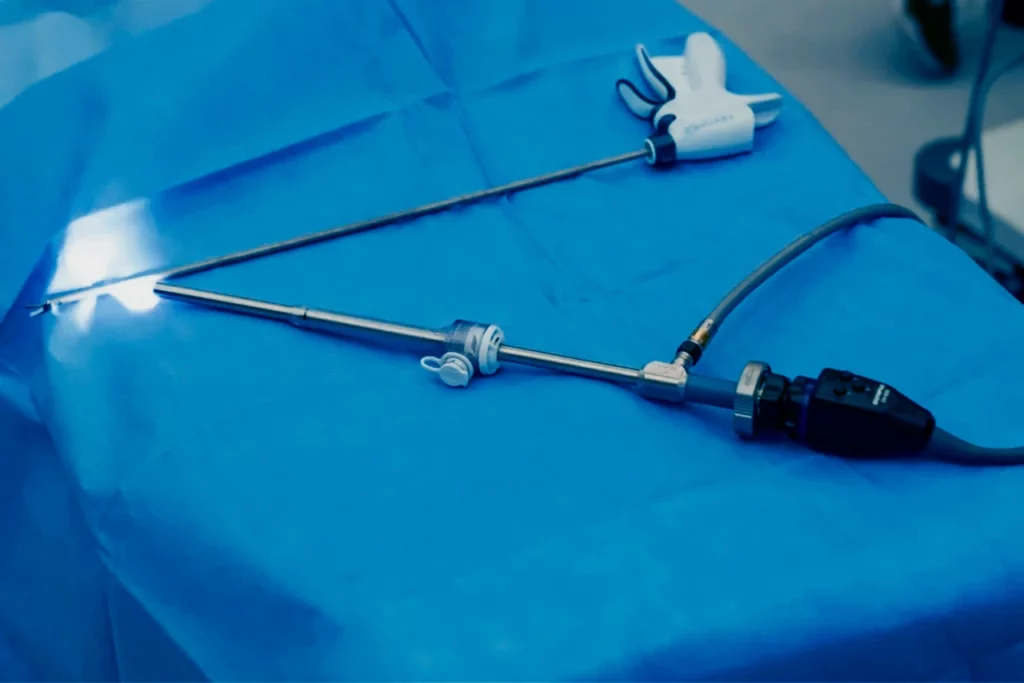It is important to understand what an endoscopy is, as this medical procedure allows physicians to observe the inside of a person’s body and diagnose various conditions related to the gastrointestinal system, the heart, the throat, nose, ears, urinary tract, and even joints.
Endoscopy
It is a very useful tool for preventing or detecting some types of cancer. It also helps diagnose, treat and monitor gastrointestinal diseases.
Another function of digestive endoscopy is to determine the cause of persistent symptoms such as heartburn, abdominal pain, inflammation, ulcers, tumors, gastrointestinal bleeding, nausea, vomiting, and swallowing problems.
Occasionally, endoscopy may be necessary to perform specific treatments, including laparoscopic surgery, microwave ablation to destroy cancerous tissue, mucosal resection, and photodynamic therapy to destroy tumors or cancer cells with laser.
This medical procedure is essential for the management of chronic conditions such as gastroesophageal reflux disease, inflammatory bowel disease, Barrett’s esophagus, stenosis, and conditions of the female reproductive system, including ovarian cysts and endometriosis; the removal of urinary stones; the treatment of recurrent urinary tract infections; and even the treatment of structural abnormalities.
In other cases, endoscopy allows therapeutic procedures to be performed without the need for open surgery, resulting in shorter hospitalization and recovery times for the patient.
What is an endoscopy?
By using a miniature camera, known as an endoscope, located at the end of a long, thin tube, it is possible to observe internal areas of the body in great detail. The endoscope also allows for the removal of tumors or foreign bodies from the esophagus, tissue samples collection, bleeding control, treatment of certain conditions, and monitoring the progression—whether toward healing or deterioration—of a medical issue.
Preparation for an endoscopy varies depending on the test, but most require a special diet and the use of laxatives prior to the procedure; painkillers may be required during the procedure.
A common concern is whether an endoscopy is painful; however, since the procedure involves the use of sedation or anesthesia, this is not the case.
Types of endoscopy
There are different types of endoscopies, which are named according to the organ or area to be examined.
- Anoscopy: to view the anus or lower colon.
- Arthroscopy: Used to look at joints.
- Bronchoscopy: allows observation of the trachea and lungs.
- Cystoscopy: intended to evaluate the interior of the bladder or urinary tract.
- Endoscopic retrograde cholangiopancreatography: helps visualize the liver, bile ducts, and pancreas.
- Colonoscopy: which examines the large intestine and colon.
- Enteroscopy: examines the inside of the small intestine.
- Esophagogastroduodenoscopy: assesses the interior of the esophagus, stomach, and duodenum.
- Laparoscopy: Helps examine the ovaries, appendix, and other abdominal organs.
- Sigmoidoscopy: to evaluate the lower part of the colon and rectum.
Depending on the area of the body being examined, the endoscope can be flexible, making it easier to examine organs located in the chest wall, or rigid, for examining joints, for example. Likewise, the extent of this equipment will vary.
In addition to the tube and camera, the endoscope may also include flexible forceps, which allow tissue samples to be extracted, and, if necessary, a cytological brush is available for collecting cell samples.
Is an endoscopy dangerous?
People may also wonder whether an endoscopy is dangerous. While, like any medical procedure, it carries minimal risk, the reality is that complications are rare. Endoscopy is a routine procedure performed frequently due to the significant benefits it provides.
A common question people have is how much an endoscopy costs. This will vary depending on the specifics of each case, such as the type of endoscopy, whether it will only be a visualization, whether samples will be taken, or anything else related.
Endoscopy near me
At the ABC Medical Center’s Endoscopy Department, we have a team of endoscopy specialists made up of board-certified physicians whose academic qualifications, certifications, and experience are rigorously documented and verified. Additionally, our facilities include an area dedicated exclusively to endoscopies and colonoscopies, equipped with state-of-the-art technology and prepared for any contingency.
We are dedicated to delivering the highest quality care to our endoscopy patients in Mexico City. We also implement measures to reduce the risk of infections, such as the use of automated endoscope reprocessors, which operate with a high-level automated disinfection system.
Fuentes:
NIDDK, CUN.es, MedlinePlus



